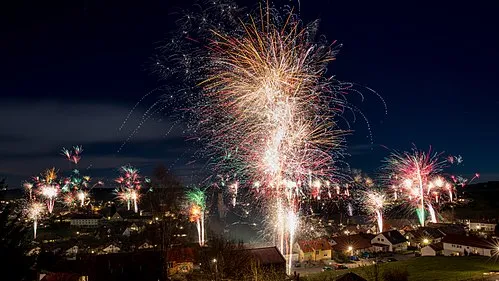
The Seventh Day of Christmas: A Joyous Celebration of the Gift of Swans
The Twelve Days of Christmas is a cherished tradition in Western Christianity, marking the period between December 25 (Christmas Day) and January 5 (the eve of the Feast of Epiphany). Among the festivities, the seventh day holds a special significance with the reference to the "Seven Swans a-Swimming." This article delves into the meaning, history, and celebration associated with the seventh of the Twelve Days of Christmas.
Historical Significance of the Twelve Days of Christmas
The Twelve Days of Christmas originated in the Christian tradition to celebrate the birth of Jesus Christ and culminate in the celebration of the Epiphany, which commemorates the visit of the Magi. Each day features unique customs and symbols that embody the spirit of the season, serving as a reminder of Christian teachings.
Interpretation of the Seven Swans a-Swimming
The seventh day brings the intriguing phrase, "Seven Swans a-Swimming." This line is often interpreted in various ways, with some believing that the swans represent the seven gifts of the Holy Spirit: wisdom, understanding, counsel, fortitude, knowledge, piety, and fear of the Lord. These gifts are essential for spiritual growth and enlightenment, reinforcing the idea that the celebration of Christmas is not only about the birth of Christ but also about the spiritual journey of believers.
Swans as Symbols of Grace and Purity
In many cultures, swans are regarded as symbols of beauty, grace, and commitment. Their elegant presence on lakes and rivers evokes feelings of tranquility and peace. As we consider the symbolism of swans in the context of the Christmas celebration, we can draw parallels to the message of divine grace bestowed upon humanity through the birth of Jesus. Just as swans glide gracefully across water, so too does the message of hope and redemption flow through the lives of believers.
Celebrating the Seventh Day of Christmas
Traditionally, each of the Twelve Days of Christmas has unique customs and activities associated with it. On the seventh day, families and communities might gather for a festive meal, including traditional dishes that reflect the heritage of the holiday season. Some might host a "swimming" themed party, where guests partake in games or activities reminiscent of swans swimming gracefully on water.
Additionally, singing or reciting the famous carol, "The Twelve Days of Christmas," can enhance the festive ambiance. Incorporating crafts or activities that celebrate the theme of swans, such as paper swan making or decorating with swan imagery, can also add to the joyful atmosphere.
Continuing the Christmas Spirit
The seventh day of Christmas is a reminder to appreciate both the spiritual and communal aspects of the holiday season. Engaging in acts of kindness and generosity embodies the true spirit of Christmas. Volunteer opportunities, community gatherings, and charitable donations are wonderful ways to carry the spirit of Christmas into the New Year.
Conclusion
The seventh of the Twelve Days of Christmas is a beautifully symbolic celebration that invites believers to reflect on the spiritual gifts bestowed upon them while cherishing the elegant imagery of swans. As families and communities come together to celebrate, they are reminded of the importance of grace, beauty, and the gifts of the Holy Spirit in their lives. Embrace the joy of the season and let the spirit of the swans inspire a deeper connection to faith and community this Christmas.






